- Write by:
-
Tuesday, July 20, 2021 - 13:05:08
-
379 Visit
-
Print
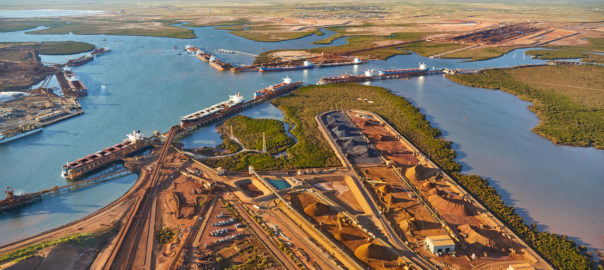
Mining News Pro - The European Union’s (EU) Carbon Border Adjustment Mechanism (CBAM) has sparked debate among those concerned with Australia’s exports and carbon emission regulation.
The CBAM was proposed by the EU earlier in July as a measure to prevent ‘carbon leakage’ from goods imported to the EU.
Carbon leakage describes the sourcing of goods from countries with looser emissions regulation for cost reasons – as the EU continues to tax emissions-intensive products, businesses may be tempted to source their materials in countries such as Australia where there are no such taxes.
CBAM aims to mitigate this, therefore affecting Australian exports by discouraging European businesses from looking to Australia for cheaper goods such as iron and steel, cement, fertiliser, aluminium and electricity generation.
A report from the United Nations Conference on Trade and Development (UNCTAD) dissected the CBAM’s implications.
“The regions experiencing income losses from an introduction of a CBAM include Oceania (with Australia dominating that region),” the report stated.
While the CBAM would remove at least 1.33 million tonnes of carbon dioxide from Australia’s emissions per year, its implementation would also remove at least $788 million from Australians’ income over the same period.
These figures are only where the CBAM charges $44 per tonne of carbon emissions (CBAM 44), while an alternative scenario – CBAM 88 – charges double, therefore doubling the emissions savings and double the loss of income.
It should be noted that developing countries are slated to feel much deeper effects if the mechanism were put in place, compared with countries such as Australia.
UNCTAD acting secretary-general Isabelle Durant said climate policy is a real balancing act and a costly one to get wrong.
“Climate and environmental considerations are at the forefront of policy concerns, and trade cannot be the exception. CBAM is one of these options, but its impact on developing countries also needs to be considered,” Durant said.
Regardless, the UNCTAD estimated the CBAM would reduce Australia/New Zealand’s exports of energy intensive products by around 2.63 per cent – a significant total for any developed region.
Minerals Council of Australia chief executive officer Tania Constable staunchly defended the efforts of Australian industry in reducing carbon emissions and expressed why Australia didn’t deserve to be taxed any more for the production of its goods.
“Proposals to tax imports of iron, steel, aluminium, cement, fertiliser and electricity under the current proposal need to fairly take into account different ways other countries are managing the reduction of carbon emissions in their economies,” Constable said.
“Miners in Australia have already progressed over 39 abatement activities including the installation of renewable energy and battery storage, hydrogen fuel cell use, fugitive emissions capture and conversion, fuel switching as well as capturing energy savings through process efficiency improvements.
“These initiatives are delivering emissions reductions now, not seeking to shift the burden through trade disruptive policies scheduled to take effect years into the future.”
Short Link:
https://www.miningnews.ir/En/News/615042
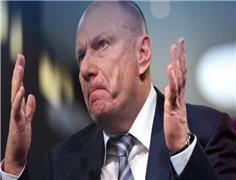
Interros, Nornickel’s largest shareholder, on Monday called allegations by fellow shareholder Rusal about undervalued ...
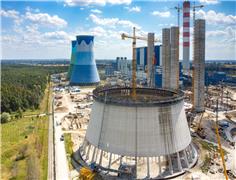
Polish government is abandoning plans to separate coal-fired power plants into a special company and is considering ...
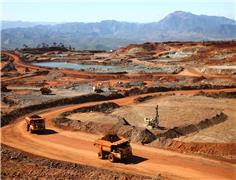
French mining group Eramet said on Wednesday it had reached an agreement with the French government to continue its ...
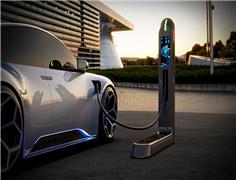
A US and European Union push to reach an accord on fostering critical mineral supply chains is set to miss another ...

The London Metal Exchange (LME) does not plan to launch a separate “green” nickel contract because the market is not ...
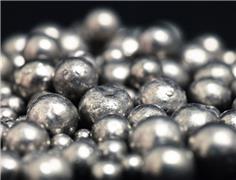
The London Metal Exchange (LME) does not plan to launch a “green” futures contract in nickel because the market for such ...
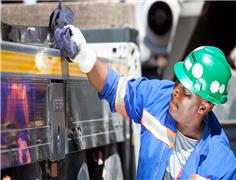
Debswana Diamond Company’s sales of rough diamonds fell 25.1% in 2023, data released by Botswana’s central bank late on ...
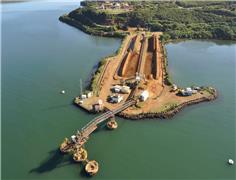
Eramet is in “very advanced talks” with the French government to remove from its balance sheet several hundred million ...
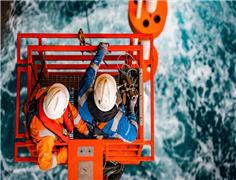
Deep-sea mining is likely just a matter of time, according to the head of the International Seabed Authority (ISA).
No comments have been posted yet ...